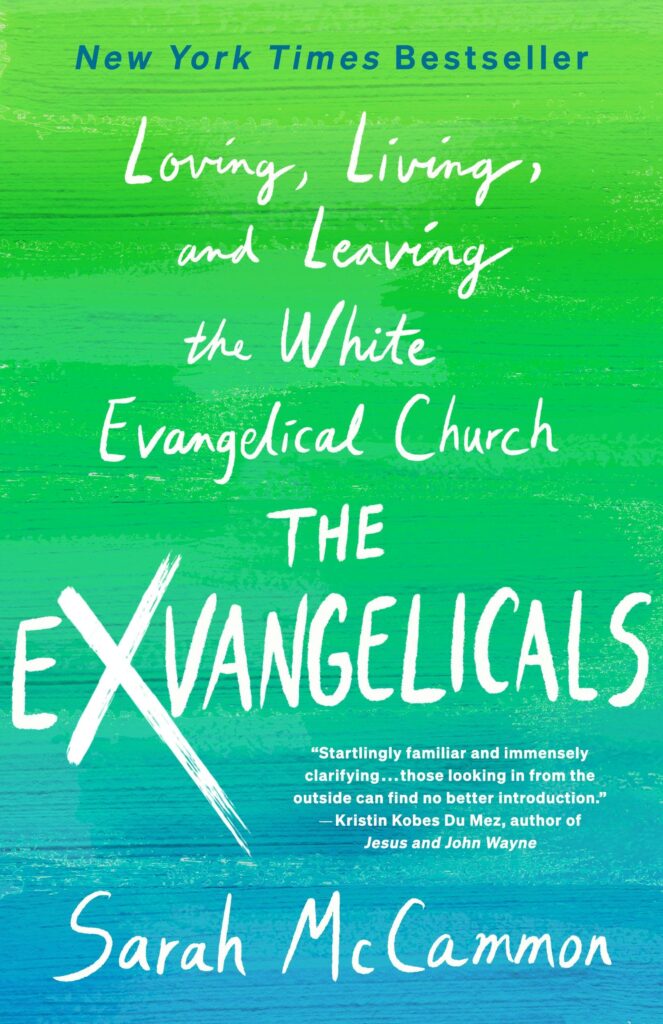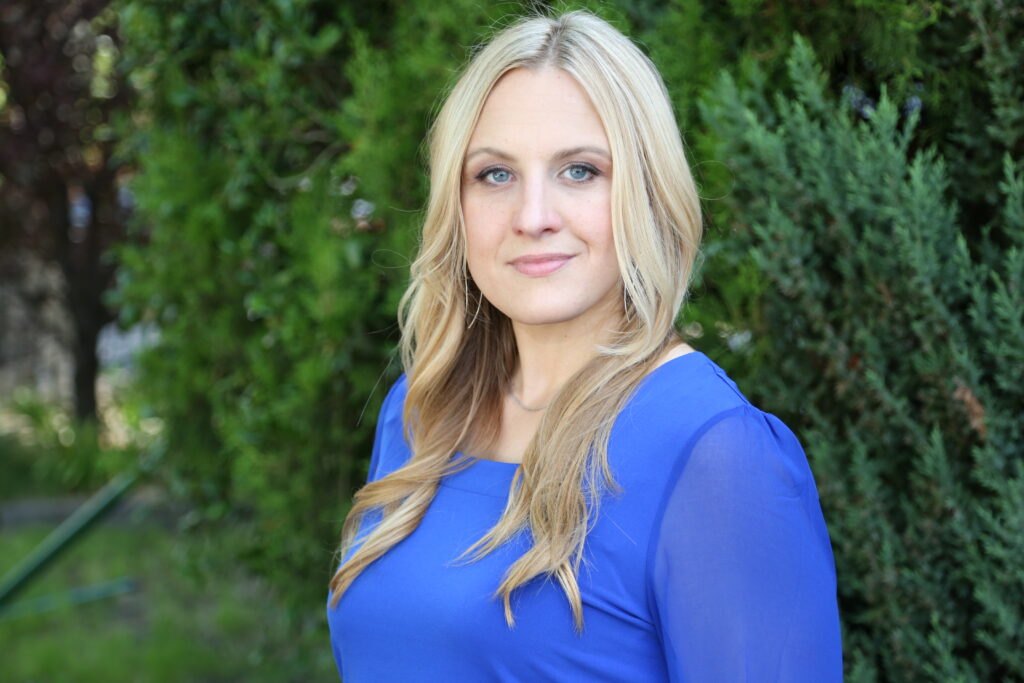Newsletter April 18, 2024
Exvangelicals: The Americans Who Are Leaving Evangelical Christianity Behind

The decline of American religion is the most important demographic development of the 21st century. Over the last couple of decades, every aspect of religious life—formal worship, private prayer, affiliation, membership, and belief—has fallen. Fewer Americans attend worship services regularly or identify with a religious tradition today than did so a few years earlier. It’s been a long-time interest of mine (Dan) and served as the topic of my PhD dissertation: “And Then There Were Nones: An Examination of the Rising Rate of Religious Non-affiliation Among Millennials.”
There has always been a good deal of fluidity and fluctuation in American religious adherence, but more conservative Christian churches have typically been more successful in holding on to their members. Yet a significant number of Americans leave evangelical Churches to join a different religion or none at all. The reasons are varied, but the statistics mostly provide starting and ending points, revealing little about the deconstruction journey.
A new book by NPR National Political Correspondent Sarah McCammon fills in this critical gap by documenting her own religious journey and what it means to live and leave an Evangelical life. In The Exvangelicals: Loving, Living, and Leaving the White Evangelical Church, McCammon documents her experience growing up in the Evangelical church and the experiences that led her to leave the faith. Along the way, she shares stories of her fellow “exvangelicals” who felt pushed away, rejected, or increasingly at odds with the values espoused by their church.

Leaving a faith tradition can be lonely and isolating, complicating relationships with close friends or family. Promise Enlow Councill, who also left her evangelical Christian upbringing behind, explained to McCammon why the process can be so difficult:
It is a culture. It is a way of life. It consumes everything, there are so many little things that can offend and upset the rest of your family that haven’t left that culture. It comes at a huge cost for a lot of people to leave that, and most of us have to sacrifice something. The thing you have to understand about evangelicalism is that it is so rooted in an insular social network of family and church, that many of the people that I interviewed couldn’t imagine leaving. This is their entire life.
Leaving your childhood religion can require stepping out into a completely foreign place, often alone. The Exvangelicals tells the stories of many who have left and illuminates a path to community building among those going through the deconstruction of their faith and the rebuilding of their lives and communities.
The Survey Center’s Kelsey Eyre Hammond caught up over email with McCammon who, despite a hectic travel schedule, was able to share her thoughts about the book, her faith experience, and what increased white Evangelical attrition means for American religion.

American Storylines (AS): What do you hope your readers take away from your book, experiences growing up in an evangelical church, and decision to leave?
Sarah McCammon (SM): I hope they gain a greater understanding of the reasons that I, and the people I interviewed for the book, have felt a need to make this kind of break, and the fact that it’s not an easy or a linear journey, most of the time. I hope people who’ve been on similar spiritual journeys will relate to what I and others have experienced, and that those on the outside will gain new insights into the evangelical subculture which has been so influential in the United States and beyond.
AS: Research shows that many people who leave evangelical Christianity become unaffiliated rather than moving to another denomination. Does this surprise you in any way? What’s behind it?
SM: Based on my conversations with former evangelicals—which are admittedly anecdotal by nature—I wonder if one reason is a fear of simply joining another “team.” There’s a sense, for many evangelicals who were raised with beliefs like young-earth creationism or a literal rapture, that many of us believed some things that seem quite unbelievable now, and I think there can be a fear of signing on to another flawed system. Based on the data I’ve seen, by the way, this tendency to avoid moving to another tradition is fairly widespread for people who disaffiliate from their childhood religion, not only for evangelicals. And of course, there are individuals who move to a new form of organized religion, but many seem cautious about doing so.
AS: How has leaving your childhood religion impacted your personal relationships, especially with your parents?
SM: I talk about this somewhat in the book, but it’s challenging to make a shift that can feel like not just a shift in belief and practice but also identity. I’ve tried to navigate it as sensitively as I can, but there have been many bumps along the way. And the answers vary with each person and each relationship.
AS: We just published some new research finding young women are leaving religion in unprecedented numbers. We have our own theories, what do you make of this emerging trend?
SM: I think that’s fascinating and again, anecdotally, a lot of the people I encounter in exvangelical and deconstruction spaces are women—or queer men. There are all types of people, but I’d say that what I’m seeing appears to match your data. I suspect it’s because many religious traditions continue to marginalize women. Also, churches have too often become places where women, not exclusively but I think particularly, have faced sexual abuse, and where the responses from leaders often are not seen as adequate or helpful.
AS: What did it mean to you to find a community of #Exvangelicals who have come together in support of one another after leaving their church? How important was it for processing some of your feelings and coming to terms with some difficult experiences?
SM: Twenty years ago, there were no online communities for this kind of experience. Now they are everywhere. People who might have felt shunned or ostracized in the past have resources today that weren’t always available. I think that changes the experience and makes the process of sorting through these kinds of spiritual and religious questions less lonely.
AS: What are your hopes for your own kids when it comes to religion? What lessons do you think they could learn from your own experience?
SM: Sometimes I wish I had been able to raise them with a more robust religious tradition, but I always felt I had to be honest with them. I couldn’t tell them things I wasn’t sure about and I didn’t want to teach them to exclude anyone. It was sort of a “first do no harm” approach for me. They’ve been raised with a knowledge of Christianity and now, thanks to their stepfather, Judaism, and I’ve tried to teach and model for them values like kindness, generosity, curiosity, and empathy. If they marry into a particular faith tradition or choose something for themselves I will fully support them.
AS: How have these formative experiences growing up in an evangelical Christian household, and your eventual decision to leave, informed your work as an NPR reporter? Has it influenced the way you engage with people, think about difficult moral and political issues, or cover conflict?
SM: I think growing up in an environment where we thought a lot about religion and spirituality has made me very curious about those things. Growing up, as I describe in the book, in a very politically and spiritually divided extended family has helped me to understand how powerful ideology can be, and how difficult these divisions can be to overcome. I try to approach people with empathy and an understanding that each person is shaped by a complex set of influences and ideas that they don’t always get to choose.
AS: What is something you miss about the time you spent as a member of an evangelical church?
SM: The singing and the community were really lovely. I still go to church sometimes, or synagogue with my husband, and I can often find that other places. I think evangelicalism – at least the form I was raised with – purports to offer a seductive certainty; I would love to have all of the answers. But as I write in my book, I don’t think we’re meant to have all of the answers. So I’m learning a different approach to faith, one that is less certain but feels, for me, more authentic.







